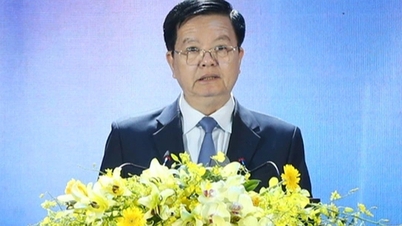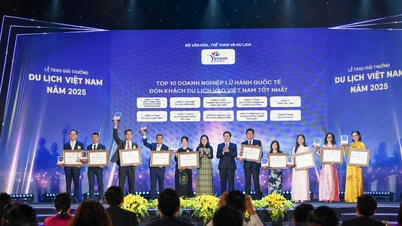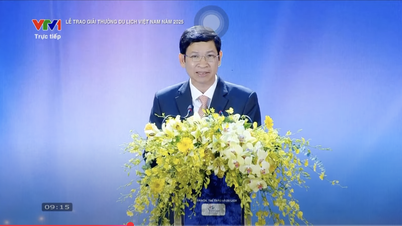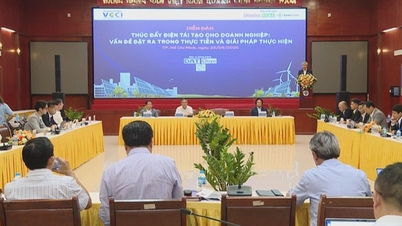On September 15, the Government issued Resolution 281/NQ-CP in 2025 on the Action Program to implement Resolution 71-NQ/TW on breakthroughs in education and training development. This includes directing the effective implementation of strengthening foreign language teaching and learning, gradually making English the second language in schools; teaching languages of neighboring countries and teaching subjects in English in places with conditions. With this policy, according to experts, it is reasonable to have specific policies in enrollment and training to encourage foreign language learning. However, the priority needs to have general regulations to be effective and fair to learners.
BALANCE POINTS PLUS FOREIGN LANGUAGE CERTIFICATES WITH OTHER PRIORITIES
Circular 06/2025 amending and supplementing a number of articles of the Regulations on University and College Admissions for Preschool Education stipulates that the total bonus points, bonus points, and incentive points (collectively referred to as bonus points) for candidates with special achievements and candidates with foreign language certificates must not exceed 10% of the maximum score on the scale (maximum 3 points on a 30-point scale). From this regulation, in the 2025 university admissions, schools will have different bonus points for candidates with international foreign language certificates. For example, one school will add 0.75 points to all candidates with international English certificates regardless of high or low scores, while another school will add 1-4 points for candidates with this certificate.

Candidates taking the high school graduation exam in 2025. In this exam, foreign language is no longer a compulsory subject.
PHOTO: NHAT THINH
Dr. Co Tan Anh Vu, Deputy Director of Vietnam Aviation Academy, said that to encourage foreign language learning, priority can be given to students who are good at foreign languages in university admissions. According to Mr. Vu, for some majors/programs that require high-level foreign language proficiency for study, schools can stipulate foreign languages as one of the conditions for submitting application documents or double the English score in the total admission score (for example, English language, English-taught programs, etc.).
In addition, for the remaining majors, Mr. Vu said that the priority points should not be added too much but should be balanced with other types of bonus points, for example, regional and subject priority points. Currently, the regulation stipulates a maximum regional priority point of 0.75 and a maximum subject priority point of 2 points, while candidates with a foreign language certificate can be awarded a maximum of 3 points (10% of the total admission score on a 30-point scale). "The maximum 3 points for a foreign language certificate is too high and inappropriate. The Ministry of Education and Training should have a general regulation, not let each school do it differently to create fairness among candidates," Mr. Vu suggested.
Regional and subject priority points maximum 2.75 points
According to the regulations of the Ministry of Education and Training, the priority score applied to region 1 is 0.75, to rural region 2 is 0.5, to region 2 is 0.25; region 3 is not counted for priority points. The priority score applied to group UT1 (including subjects 01 to 04) is 2 points and to group UT2 (including subjects 05 to 07) is 1 point. The priority score for candidates with a total score of 22.5 or higher (when converted to a score on a scale of 10 and the maximum total score of 3 subjects is 30) is determined to decrease gradually so that candidates with an exam score of 30 will not receive priority points.
Meanwhile, the admission regulations stipulate that the bonus points for candidates with special achievements and candidates with foreign language certificates must not exceed 10% of the maximum score of the assessment scale (maximum 3 points for the 30-point scale). For foreign language certificates used to exempt high school graduation exams according to the regulations in the High School Graduation Exam Regulations, training institutions can convert them into foreign language scores to include in the admission subject group with the weighting of the assessment score not exceeding 50%.
Dr. Pham Tan Ha, admissions and training consultant of the University of Social Sciences and Humanities (Ho Chi Minh City National University), said that allowing universities to add up to 10% of the total admission score to foreign language certificates is too much. Mr. Ha said: "It is possible to maintain the addition of points in admission for PhDs who are good at foreign languages, but there needs to be a general regulation from the Ministry of Education and Training for all schools to implement. This regulation can be divided into 3 levels such as regional priority points and should only allow a maximum addition of 5% of the total admission score." According to Mr. Ha, this approach will ensure fairness and avoid disadvantages for students in difficult circumstances, in remote areas who do not have the conditions to study and take foreign language exams early.
CONSIDERING FOREIGN LANGUAGE REQUIREMENTS AS WHEN STUDYING ABROAD?
Regarding this issue, Dr. Quach Hoai Nam, Principal of Nha Trang University, said that on a macro level, equity in access to education must become a pillar of national policy. University training programs need to clearly define the foreign language proficiency of learners at the entrance to study the program, not at the output. If foreign language is determined as an entrance requirement to study the program, there needs to be a certain standard level and considering other subjects separately, adding points with foreign language certificates is also unnecessary because it does not demonstrate the actual ability of students. Therefore, Mr. Nam said that only foreign language requirements should be considered separately, similar to when studying abroad.
Speaking more about this form, Dr. Pham Tan Ha also said that some universities do not accept international language certificates in admission. Instead, students who are good at foreign languages are given priority in the training process such as: exemption from English courses in the university program, early graduation, opportunities to participate in activities with international elements...

Successful candidates complete the procedures to register for admission to university. Experts say that the point-adding policy needs to have general regulations to be effective and fair to students when considering university admission.
Photo: Dao Ngoc Thach
AVOID CREATING THE RISK OF A "DOUBLE GAP"
Dr. Nguyen Quoc Anh, Vice Principal of Ho Chi Minh City University of Technology, also stated that it is necessary to have a policy to encourage foreign language learning in the current trend to integrate internationally and improve the quality of training. When schools publicly add points or directly admit students with international language certificates, students are motivated to practice long-term, contributing to improving the foreign language level of society. This process also meets the global human resource needs when most professions today require foreign languages. However, according to Mr. Quoc Anh, currently, foreign language teaching is still different between regions. Students in cities or private schools have easy access to centers, native teachers, and exam preparation materials, while many rural and mountainous areas lack infrastructure. The high cost of training and taking international certificates can make this priority an invisible barrier for disadvantaged students. This will create the risk of a "double gap" when students who already have many advantages are given extra points.
From the above analysis, Mr. Quoc Anh proposed to consider foreign language certificates as a limited point-adding channel, for example, a maximum of 1-2 points (on a 30-point scale) to avoid "overwhelming" other criteria. In addition, prioritizing according to competency standards rather than having expensive certificates, the Ministry of Education and Training or school alliances can organize national foreign language proficiency tests (free or low-cost) to reduce dependence on international certificates. At the same time, add points or waive exam fees for students in remote areas; have scholarships or support exam fees. In addition to international certificates, the results of standardized domestic English exams or foreign language scores in high school graduation exams with a new competency assessment scale should be accepted. It is possible to consider applying by industry group, for example, only applying strong priority to industries that really need high foreign language proficiency (international studies, tourism , international trade, etc.).
Source: https://thanhnien.vn/tuyen-sinh-dh-2026-can-cong-bang-trong-chinh-sach-cong-diem-ngoai-ngu-185250917191057405.htm






![[Photo] Prime Minister Pham Minh Chinh attends the groundbreaking ceremony of two key projects in Hai Phong city](https://vphoto.vietnam.vn/thumb/1200x675/vietnam/resource/IMAGE/2025/9/27/6adba56d5d94403093a074ac6496ec9d)

































































































Comment (0)